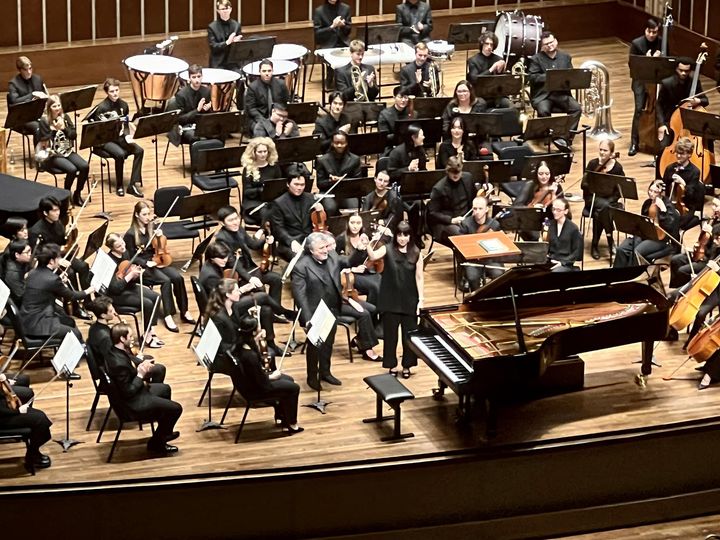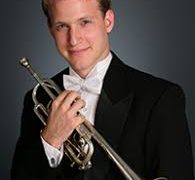A fond memory of Hugues Cuénod as a young tenor
main
He was a young man for most of his life, including most of the years I knew him personally. Let’s see, I first ran into him chez Nadia Boulanger, in 1965, when he was a youth of, I think, 63.
But I’m thinking back right now to the early 1970’s. Hugues Cuénod and I and the late harpsichordist c had recorded, about a year earlier, a program of lutesongs and instrumental pieces by the great Elizabethan master John Dowland. The recording was made in Christiane’s living room in Rivaz, Switzerland, and the sessions were documented in photography by her husband, Pierre. A sound man from Radio Lausanne, Claude Maréchaux, recorded and edited (in situ) the raw takes. The energetic Cuénod had worn us out the first night of sessions, simply refusing to stop, and tearing through one Dowland masterpiece after another. At age sixty-nine, he was burying us all.
I took the finished, reel-to-reel master tapes from Switzerland to New York, where the unforgettable Georges Mendelssohn of Vox had agreed to release them. The recording appeared, with one of those tacky Turnabout covers, but it was still of good quality, and how satisfying it was to have it out. Complimentary copies of the long-playing record had gone in the mail to various friends and mentors, and one of the first people to acknowledge receipt was Mademoiselle Boulanger, in a lovely handwritten note to me. Having weathered, during my student stint in Paris, almost two years of her near-constant disapproval during weekly theory lessons, I was surprised at the generosity of her response, which I shared with Cuénod. “Well, that’s nice,” he replied. “Let’s meet in Paris and go over to see Nadia together. Bring your lute and we’ll sing her something.” Cuénod and Boulanger, of course, went years and years back. (My God, he called her Nadia!) She had mentioned him once in a while during those lessons, as a paragon of impeccable musicianship, a peerless interpreter of Stravinsky or Renaissance music, in implied contrast with inadequate wannabes such as me.
Well, by this time I had left the Boulanger circle, and was no longer a student. I had made a few recordings, including this Dowland program, and was happy to be making my way in the professional world. It was late May or early June, as I recall, a Wednesday afternoon of course, and I had indeed brought my lute over with me from Boston. Cuénod and I met at the Place Clichy, and walked a block to the rue Ballu and Mademoiselle’s fourth floor apartment, where she received every week from five to seven. We entered the apartment, as always a large marble bust of sister Lili dominating the foyer, were greeted, and sat, and Mademoiselle talked, voicing strong opinions, as always in that husky baritone voice of hers. There might have been thirty people present. She talked again, and talked more. Her audience of intimidated music students and aging women of a certain milieu – there were always members of various elites in attendance – listened to her in stupefied silence. Hardly anyone else spoke. This was, at this stage of Mademoiselle’s career, the way those afternoons frequently played out. Finally, after about an hour, Cuénod signalled to me that he wanted to leave. Without having uttered more than a polite phrase or two to Mademoiselle, and without my having removed the lute from its case, we said our farewells and went back down to the street.
Of course I was disappointed. I had wanted to be seen and heard, no longer a student, as some sort of colleague, alongside this legendary, great singer, in the rarified context of the mythical Nadia Boulanger’s salon. But it was not to be. “I just had to get out,” apologized Cuénod. “I simply couldn’t stand all those old people.”
That remark made it all OK to me, and made me realize that I was not alone in my ambivalence about those Wednesday salons, my awe of Nadia Boulanger’s stupendous musicianship notwithstanding.
What was also extraordinary to me, just thirty at the time, was that those words came from a man who was himself seventy, a longtime intimate of the circle, and not all that much younger than Mademoiselle. Yet, at seventy, he was still defining himself as young.
In fact it was not so much chronology that separated Huguie from the Boulanger ethos – even though he was, along with Stravinsky, Ravel, Paul Valéry, and others, an eminent, oft-cited member of her pantheon – as much as an independent spirit. Cuénod, ever the polyglot, sociable charmer, got along with just about everybody, and I never heard anyone say a bad word about him. But he remained himself at all times, somehow ever so slightly apart, cultivating humor and irony, refusing to be swallowed up by any belief system or cult. There was something of Peter Pan about this independently wealthy aristorcrat, who performed, mainly, for fun.
It’s hard to remain youthful forever; nonetheless, the vital energy inside Cuénod had an extraordinarily long run. The next-to-last time I saw him, at his home in Vevey’s market square, it was about a quarter century later than the Paris salon I have just evoked. And yet he was the same Huguie. At age ninety-five, he trotted down two flights of stairs to open the door of his home, served sherry to his guests, spoke frankly and almost cheerfully about what was going to happen to the ancestral estate after his death, and made a few semi-malicious comments about various people in the music business, before ushering my small party (including Pierre, who had made the session photos way back when) back into the winter night.
Fast forward, another ten years. He had changed by that last visit, but who would not have at one hundred and five? Still living at home on the Place du Marché, he seemed happy with his companion Alfred, and they were clearly a devoted couple.
I never in my life met anyone who stayed so young so long. And there are still plenty of stories to tell! Even better than the stories: His singing gave me and countless others endless, enduring pleasure. The example of his undying love for and joy in music is unparalleled in my experience. What a great existence he had; may his soul rest in peace.
Joel Cohen
Amesbury, Ma.
9 December 2010





Joel Cohen’s marvelous account brings a tear to the eye, but also a smile to the lips. As Dr. Seuss used to put it, “Don’t cry because it’s over. Smile because it happened.” Although a long life and distinguished career are over, we can all smile because there was an artist like Hugues Cuénod; thank goodness for recordings, too. Thanks for sharing this!
Thanks Marie for this comment. In fact I too am smiling with so many good memories.
For the record, the harpsichordist on those Dowland sessions was Christiane Jaccottet. I talked yesterday to her widower, Pierre, who is willing to authorize a re-edition of Cuénod’s Dowland recording. I’ll consider ordering a custom CD repressing if there is enough interest expressed.
Joel Cohen
Joel, consider this lady interested, both for my collection and for on-air use at WCNY-FM! Our hosts do their own programming, and I can think of at least two who would welcome such a CD. I can be reached at marie_lamb@wcny.org. (Norman, my work e-mail address may be publicly shared, since I handle the e-mail from artists and labels for the most part.–M.L.)
A wonderful memoir of a wonderful record: this Dowland recording has inspired me more than any other interpretations I have heard of old semper dolens – I so hope a good CD transfer can be made, as my Turnabout LP is wearing out!